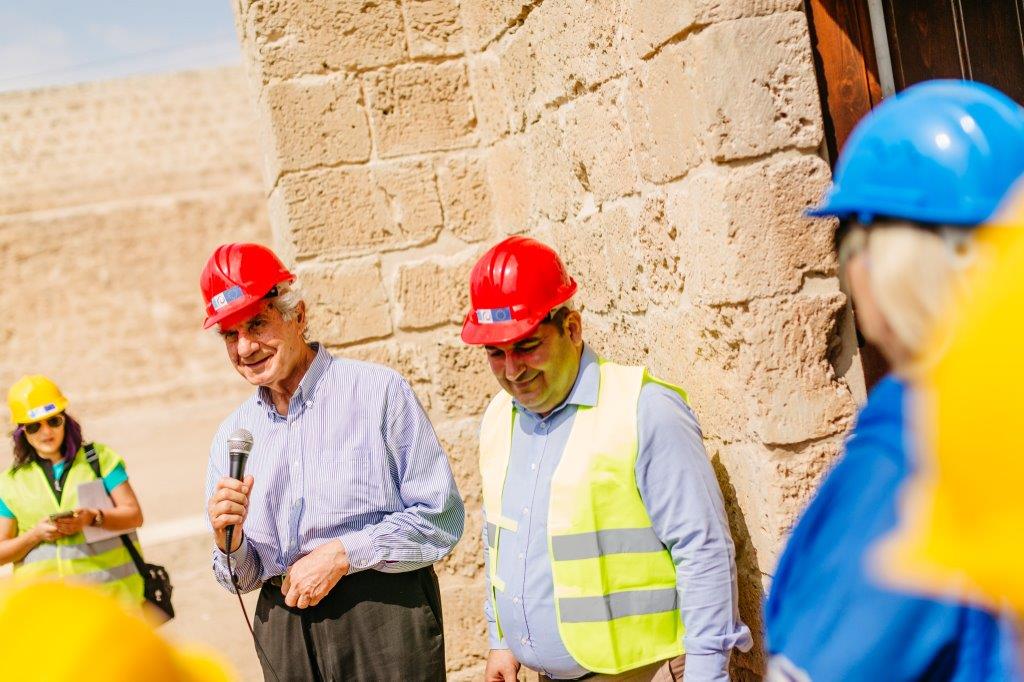By Nasia Hadjigeorgiou
Day in day out, Greek Cypriots hear about the difficulties that exist in resolving the Cyprus problem – Turkey is not willing to compromise, Turkish Cypriots are not capable of pushing hard enough for a settlement, the international community has lost both its interest and patience with never-ending failed negotiations. What we hear a lot less about and what I want to shed some light on are the bicommunal Technical Committees that also fall under the responsibility of the two communities’ negotiating teams.
Most people are likely to know very little about these bicommunal bodies, perhaps with the exception of the Technical Committee on Cultural Heritage, which has to date protected over 120 heritage sites islandwide, with EU contribution amounting to €27 million. For its conservation of Orthodox, Maronite and Armenian churches, mosques and minarets, fortifications, hammams, aqueducts and watermills, the Technical Committee received the European Heritage Europa Nostra Award in 2021.
Yet, the Technical Committee on Cultural Heritage is not the only one that has been doing valuable work. There are currently 12 such Committees – made up of Greek Cypriot and Turkish Cypriot volunteers – that are tasked with ‘addressing issues that affect the day-to-day life of people, through encouraging and facilitating greater interaction and understanding between the two communities’. In addition to the Technical Committee on Cultural Heritage, there are Technical Committees on Broadcasting and Telecommunication; Culture; Crime and Criminal Matters; Economic and Commercial Matters; the Environment; Gender Equality; Health; Crisis Management; Crossings; Education; and Humanitarian Affairs.
Combined, these Committees have become involved in several noteworthy activities. Until October 2022, the Technical Committee on Education implemented the Imagine project, which in the 2019/20 academic year brought together 1,285 students and 162 teachers from the two communities. The Technical Committee on Crime and Criminal Matters has established the Joint Communications Room, a bicommunal information-sharing mechanism with two offices (one in Nicosia and one in Pyla), which has, to date, enhanced cooperation and contributed to the handling of more than 1,000 criminal cases across the island. The Technical Committee on Health played an instrumental role during the pandemic in coordinating the two communities’ responses to Covid-19 and in making some vaccine doses that had been received by the Republic of Cyprus available to the Turkish Cypriot community.
The Technical Committee on Economic and Commercial Matters helped adopt the ‘Halloumi/Hellim’ protected designation of origin package and has started facilitating contact between the banking systems of the two communities (although much still remains to be done on that front). In 2019, 40 children and youth with autism and Down’s syndrome from both communities were given the opportunity to dance together, when this was facilitated by the Technical Committee on Humanitarian Affairs.
All of the projects receive logistical and technical support from the United Nations Development Programme in Cyprus and all of them have been funded by the European Union, which has been pushing for the implementation of even more projects as the budget it has set aside for these has not yet been spent.
At a time when negotiations are entirely dormant, the Technical Committees show there are still people on the island who are working towards better cooperation and trust-building. Despite their best efforts, however, much more remains to be done both by the Technical Committee members themselves and by the community leaders, authorities in the Republic of Cyprus and local bodies in the north to inform the communities of their activities. If, after all, their objective is to ‘facilitate greater interaction and understanding between the two communities’, members of the two communities must be better informed of what has been achieved to date.
This publication was funded by the European Union. Its contents are the sole responsibility of ICLAIM and the Human Rights Platform and do not necessarily reflect the views of the European Union. Nasia Hadjigeorgiou is an Assistant Professor of Transitional Justice and Human Rights at UCLan Cyprus and resident researcher at ICLAIM







Click here to change your cookie preferences